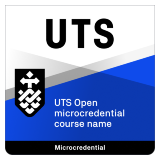The following content will be explored during the course:
- Reference dependence
- Context effects, heuristics and biases
- Time preferences
- Risk preferences
- Mental accounting.
Course delivery
This course is delivered online using a range of resources, self-directed study and live interactive sessions with the academic. Course content will be presented to participants in a variety of formats (lecture slides, notes, videos, articles) and delivered online. At the beginning of the course, participants are expected to review materials and complete tasks on their own before attending online review sessions with the lecturer that are spread over the learning period. While materials will be provided to participants via the learning management system, you are also expected to seek information independently. Feedback will be given following formative assessment and during online sessions.
Participants will need to undertake approximately 10 hours of self-directed online learning each week over 7 weeks.


















